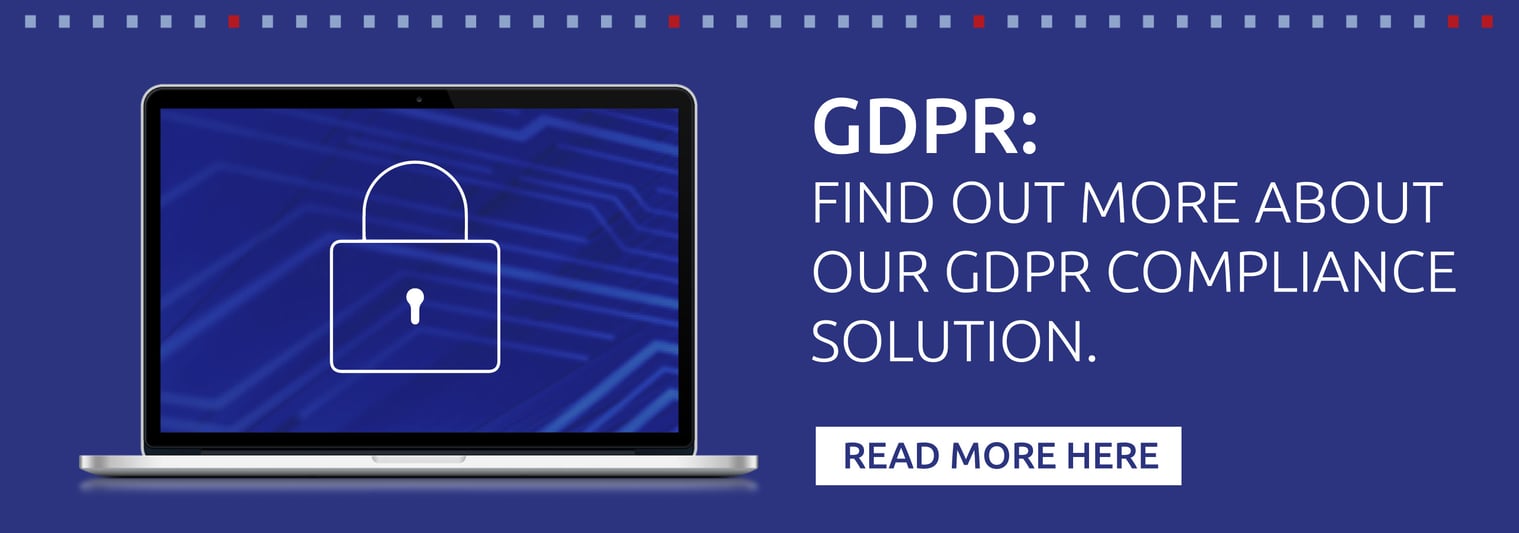-
SOFTWARE
SOFTWARESAP HCM/HXM & PayrollQuery Manager Query Manager Add-ons Document Builder Variance Monitor DSM for HCM HCM/HXM Productivity Suite FLOW GeoClockSAP Landscape & Test Data ManagementData Sync Manager (DSM) suite - System Builder/Shell Sync - Object Sync - Client Sync - Data Secure Archive CentralSupport & TrainingClient Central E-learning & trainingSAP Data Privacy & SecurityData Privacy suite - Data Secure - Data Disclose - Data Redact - Data Retain Cenoti (Splunk connector) Soterion (GRC)
-
SERVICES
SERVICESSAP HCM/HXM & PayrollPRISM for HR & Payroll SAP SuccessFactors Integration monitoring Payroll reporting Report writingClient-specific DevelopmentCustom development SAP BTPSAP Landscape & Test Data ManagementPRISM Migrations to S/4HANA System Landscape Optimization (SLO) Managed data refresh servicesSAP Data Privacy & SecuritySAP data privacy assessment serviceMass data removal services Data privacy consultingCloud and Application Managed ServicesFunctional AMS Cloud management services Cloud migrations Basis managed services Private cloud hosting SAP on AWS SAP on Azure Premium Support Services
- All Solutions
- Request Estimate
-
Resources
Resources Blogs Read the latest updates on SAP SLO, SAP HCM, Data & Privacy, and Cloud Webinars Access expert insights in live and recorded webinars Video library Watch videos and improve your SAP knowledge
- About
Protecting consumers: why is GDPR so important?
As Senior Vice-President of the ALM Products at EPI-USE Labs, Paul Hammersley's portfolio includes test data management, landscape optimisation, and archiving. He has been a remarkable technical force in the SAP arena for over 20 years, and has extensive hands-on experience of implementing Data Sync Manager (DSM) and helping clients to manage data across the breadth of their SAP landscapes.
Over the festive period, I’ve spent far more time in shops and watching telly than I normally would (and probably should). A couple of things jumped out at me which made me realise the importance of protecting our personal preferences and choices. This may sound like ‘bah humbug’ ranting – but it will come to a point, I promise.
Observation 1:
The supermarket is increasingly a battle of mental dexterity. I’ve seen ‘two for £5’ offers, with the same product in twice the volume for £4 underneath, and a ‘three for £5 offer’ when the normal price comes in at £4.95 for three. Drinks that normally come in 330ml bottles are being sold in multipacks for a supposed deal, but with a volume of only 300ml.
Then when putting a child’s pizza in the oven, I wondered just how the mandatory dietary information was so much better than I can ever seem to find on an adult’s pizza. I saw there was a * next to the note that this was the percentage of RDI (Recommended Daily Intake), so I looked for that * on the back – and found that these were percentages of RDI for an adult.
The theme here: supermarkets operate in such a mature and competitive market that the only way they can now ‘achieve value for shareholders’ is by hoodwinking us. 
Observation 2:
If you watch any sport on TV, you are now bombarded with betting adverts. And these adverts are clearly designed to appeal to sports fans, and make them feel like they are in some way part of the game as if they’re betting on it. They all have slightly different angles, but they are attempting to appeal to something missing in the viewer’s life.
The money being spent on this advertising tells you there is money to be made here. This, coupled with the recent topic of fixed-odd betting machines and the danger they pose to vulnerable members of society, leads me to conclude that these companies are determined to relieve people of disposable income or encourage them to spend money that they really cannot afford to spend. 
Consumer coercion
Both of these are examples of business practices to maximise profit which lean on psychology and sociology to coerce consumers. But messaging in the traditional outlets of physical shops and TV advertising has to be broad to catch all consumers, which means it is also a lot less effective. When these companies can message to individual people, such as in a betting app, or offers in a shopping app, or apply targeted advertising using historical information on shopping/betting habits along with personal taste, preferences and trends, it can be much more focused. And so it becomes much more dangerous, particularly for those who can’t afford to waste much of their income, i.e. the poorest and most vulnerable members of society.
Supermarkets already do this to some degree with their loyalty cards. We receive offers for slightly more volume than we normally purchase for a product, or perhaps a ‘deal’ on something we normally buy, which is actually more expensive. I wonder just what the betting apps are already doing in targeting individual behaviour to the companies’ advantage…
Respecting and protecting consumers
For now, I welcome the emergence of the German privately-owned supermarkets which don’t use loyalty programs to track preferences and leverage them, or use offers which aren’t really better for the consumer, in my view, to increase their profit margin. But in the long term, I’m very glad the EU has foreseen this danger and is protecting citizens from it as best they can.
We’ve discussed just two industries here and a very small part of the technological capabilities companies have today. The scale and breadth of how technology can affect customer targeting is massive. The GDPR in effect forces companies to take more responsibility for how they target consumers, and makes their use of data much more transparent and proportionate. And I can see other regions of the world following suit with similar legislation to prevent the dangers technology can now pose for society.
The impact of inaction would be devastating on the most vulnerable individuals, and damaging for society as a whole. Money spent that cannot be afforded is a sure way to create a credit crisis.
Posts by Topic
- GDPR (41)
- Data Privacy (32)
- Data Security (31)
- Data Secure (20)
- GDPR compliance (18)
- Data Redaction (13)
- data scrambling (13)
- General Data Protection Regulation (12)
- Data Redact (11)
- POPI Act (11)
- POPIA (10)
- SAP Data Security (10)
- SAP GDPR (10)
- Data Archiving (9)
- Data Sync Manager (9)
- SAP data privacy and compliance (9)
- Right to be forgotten (8)
- Data privacy compliance (7)
- Data privacy regulations (7)
- GDPR readiness (7)
- GDPR deadline (6)
- Personal data (6)
- SAP (6)
- SAP security (6)
- GRC for SAP (5)
- SAP systems (5)
- Access Risk management (4)
- Access risk controls (4)
- Data minimisation (4)
- Data security breaches (4)
- Governance, Risk Management and Compliance (GRC) (4)
- SAP data privacy and security (4)
- compliance (4)
- COVID-19 (3)
- Data Privacy suite (3)
- Data privacy by design (3)
- Risk monitoring (3)
- SAP data copying and masking (3)
- SAR (3)
- Soterion (3)
- Subject Access Request (3)
- anonymised data (3)
- Australian Privacy Act 1988 (2)
- CCPA (2)
- Cenoti (2)
- Client Sync (2)
- Data Protection Day (2)
- Data masking (2)
- European operations (2)
- Federal Law (2)
- GDPR fine (2)
- Guest order (2)
- ICO (2)
- May 2018 (2)
- Object Sync (2)
- One-time customer (2)
- Privacy by Design (2)
- Reducing risk (2)
- Right to Erasure (2)
- Risk minimisation (2)
- S/4HANA Migrations (2)
- SAP S/4HANA (2)
- SAP data (2)
- SAP data privacy & security (2)
- Secure scrambled production data for testing (2)
- Test Data Management (2)
- security breach (2)
- Backlog privacy debt (1)
- Black Friday (1)
- Black Friday hangover (1)
- Black Friday sales (1)
- Breach Notification (1)
- Brexit (1)
- Budget (1)
- Canada data privacy legislation (1)
- Cenoti, connecting SAP with Splunk (1)
- Cloud migrations (1)
- Confidentiality (1)
- Consent (1)
- DSM (1)
- DSM Readiness Assessment (1)
- Data Portability (1)
- Data Removal (1)
- Data Replication (1)
- Data Sync Manager (DSM) (1)
- Data integrity (1)
- Data processor versus controller (1)
- Data retention rules (1)
- Documentation (1)
- EPI-USE Labs’ solutions (1)
- Employee data (1)
- Europe (1)
- Friday 25 May 2018 (1)
- GDPR-type legislation (1)
- GRC (1)
- GRC for SAP tools (1)
- General Data Protection (1)
- HCM (1)
- HR (1)
- ILM (1)
- Information Commissioner’s Office (1)
- Information transfer (1)
- Infotype 41 (1)
- JSOX (1)
- New Zealand Privacy Act (1)
- Online shopping (1)
- Penalties (1)
- Phantom (1)
- Proportional Data (1)
- Protect personal employee data (1)
- Removing data in SAP (1)
- Right to Access (1)
- Rise with SAP (1)
- Risk management (1)
- S4HANA (1)
- SAP Cloud (1)
- SAP Data Privacy Suite (1)
- SAP RISE (1)
- SAP SuccessFactors (1)
- SAP access risk simulations (1)
- SAP data encryption (1)
- SIEM (1)
- SOX (1)
- Sarbanes-Oxley (SOX) legislation (1)
- Security (1)
- Security Information and Event Management (1)
- Security for SAP. Live (1)
- Sensitive HCM data (1)
- South African data privacy legislation (1)
- Splunk (1)
- Splunk UBA (1)
- Splunk’s Enterprise Security (1)
- Success Factors (1)
- Territorial Scope (1)
- UK Government (1)
- User Access Review (1)
- Virtual conference (1)
- What does the European GDPR mean for Australia? (1)
- ebook (1)
- masking rules (1)
- quality of test data (1)
- system copy (1)
- uk sox (1)
Blog Archive
- November 2023 (1)
- October 2023 (1)
- March 2023 (1)
- October 2021 (1)
- July 2021 (2)
- June 2021 (1)
- May 2021 (1)
- February 2021 (1)
- January 2021 (1)
- December 2020 (1)
- November 2020 (2)
- October 2020 (1)
- September 2020 (2)
- August 2020 (1)
- June 2020 (2)
- January 2020 (1)
- November 2019 (1)
- October 2019 (1)
- September 2019 (2)
- August 2019 (1)
- July 2019 (2)
- January 2019 (2)
- November 2018 (3)
- October 2018 (6)
- September 2018 (2)
- July 2018 (1)
- May 2018 (1)
- April 2018 (1)
- March 2018 (1)
- January 2018 (1)
- December 2017 (1)
- November 2017 (2)
- August 2017 (1)
- July 2017 (2)
- June 2017 (1)
- May 2017 (3)
- February 2017 (1)
- January 2017 (1)
- October 2016 (1)
- June 2016 (1)







Leave a Comment: